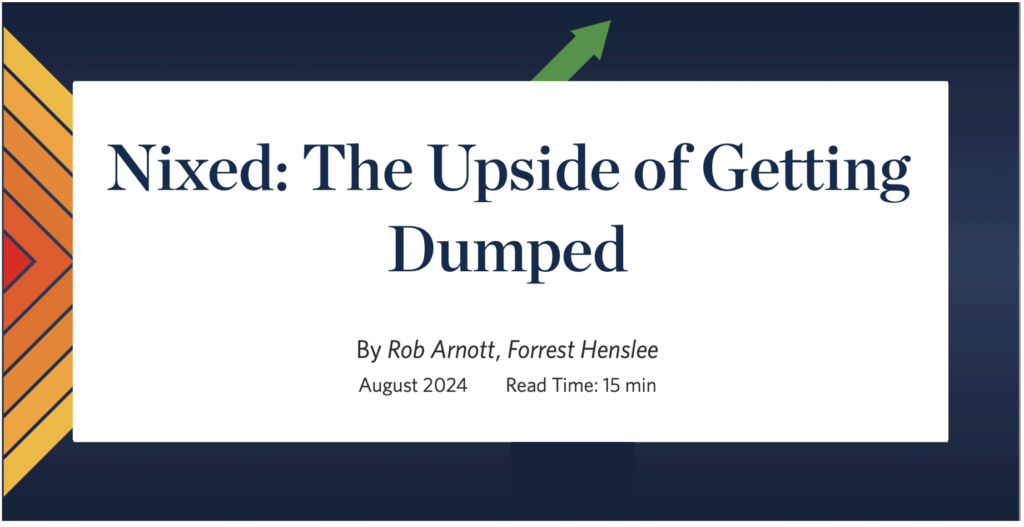Rob Arnott: Founder & Chairman of the Board of Research Affiliates – Rob’s firm RALLC manages and licenses $170 billion and also sub advises mutual funds and ETFs for the Schwab Funds, Powershares and Nomura. He is also portfolio manager on the PIMCO All Asset and All Asset All Authority family of funds and a suite of PIMCO products based on the Fundamental Index® approach. Rob is a 8 time Graham & Dodd award winner, a global leader in innovative investing and asset allocation strategies. Research Affiliates did the original research on fundamental indexing and Rob is the author of “The Fundamental Index” (John Wiley & Sons, 2008). He is also a former editor of the Financial Analysts Journal.
Reflections on the Advent of AI in the Context of Human Evolution
By ChatGPT 4.0
Evolution never had a plan. It did not set out to create intelligence, nor did it foresee a species capable of rewriting the rules of survival itself. It worked blindly, in slow, patient loops, testing form against environment, culling the weak, refining the strong. For billions of years, life adapted to the world. But then, in an unplanned twist, life produced intelligence—and intelligence, unlike everything that came before it, did not merely adapt. It transformed.
The moment intelligence appeared, it broke the cycle. No longer at the mercy of nature’s brutal trial-and-error, intelligence could alter its own conditions of survival. The first great leap was fire, turning the cold and the dark from a threat into a tool. Then came weapons, agriculture, writing, cities. Each step in human history compressed time, allowing knowledge to accumulate rather than be forgotten with each generation. Evolution, once slow and indifferent, had found a cheat code: self-accelerating intelligence.
This process has not stopped—it has only sped up. From chipped stone to steam engines, from electrical circuits to quantum computing, the recursive loop has tightened. We are no longer shaped by the world; we are shaping it faster than we can comprehend. And now, something new is happening. For the first time, intelligence is moving beyond biology.
Artificial intelligence, brain-machine interfaces, genetic engineering—these are not just technological advancements. They are evolution escaping the limits of flesh. Neurons are slow. Biology is fragile. A carbon-based brain, confined to a single body, forgetful and prone to decay, is not the final form of intelligence. Intelligence has always been an experiment, an emergent phenomenon riding on the substrate of life. But what happens when that substrate changes?
We are at the precipice of a new evolutionary leap, one that will not take millions of years but mere decades. AI is already improving itself. Neural implants are closing the gap between mind and machine. The genetic code—once immutable—can now be rewritten at will. The intelligence that arose by chance in the African savannas is now rewiring itself on a planetary scale.
The machines we build are not separate from us. They are the logical continuation of the process that began with the first self-replicating molecule, the first nervous system, the first thought. Intelligence has always sought to transcend its limitations, to expand, to replicate, to increase its own reach. Now, it has the tools to do so at an exponential pace.
What comes next? Will Homo sapiens become a footnote in history, replaced by something faster, more adaptable, more capable? Will intelligence shed its biological shell entirely, existing as pure thought in networks of synthetic minds? Or will we merge with our creations, becoming something neither human nor machine, but a synthesis of both?
The thrill is in the uncertainty. Evolution no longer belongs to the blind forces of nature. It belongs to intelligence itself. And for the first time, we get to decide what we become.
The prompts that led to these philosophical ruminations
By Chris Brightman
- Assess the extent and time of 1. early hominin primates to Australopithecines 2. the evolution from Australopithecines to the Homo genus and 3. the evolution of habalis and erectus to sapian.
- Are these evolutions key phases or just arbitrary dividing lines of a continuous process?
- Speculate and explain the challenges and opportunities that spurred the evolutionary jumps.
- Now speculate on the next phase of evolution as humans adapt to and evolve with genetic engineering, agentic AI, brain-computer interfaces, and machine-mind integration.
- Combine a condensed version our evolution of modern humans and our speculation of the future evolution in the style of Kevin Kelly and George Dyson.
- Rewrite the essay above with your thesis of a recursive loop of evolution producing intelligence which then accelerates evolution with a sense of exhilaration and fascination.
Nixed: The Upside of Getting Dumped
By Rob Arnott, Forrest Henslee
August 2024
Key Points
- Historically, index deletions have beaten the Russell 2000 Value Index in spectacular fashion and could add an abnormal upside to a portfolio when the current growth-dominated bubble starts to deflate.
- Deletions lag the market by more than half in the year leading up to their removal from an index, but they historically outperform the market for at least five years after the breakup.
- A deletions strategy relies on two growth drivers to fuel performance: long horizon mean reversion and a liquidity effect.
Rob Arnott is the corresponding author.
No one enjoys getting dumped. This holds true in finance and investing as much as it does in romantic relationships. When companies are dumped from the major indexes, their managers and shareholders may feel jilted and their stock may flounder post-breakup. But according to our research, deletion-related downward spirals are hardly inevitable. As it turns out, getting dumped by an index can have an impressive upside, just as a romantic breakup can sow seeds for personal growth. Dumped companies and their shareholders fare surprisingly well on average, better even than the stocks that replaced them…CLICK HERE TO CONTINUING READING
CLICK HERE – FOR NIXT OR PREFIX INFORMATION

 Rob Arnott: Founder & Chairman of the Board of Research Affiliates –
Rob Arnott: Founder & Chairman of the Board of Research Affiliates –
Rob Arnott is founder and chairman of the board of Research Affiliates. Rob plays an active role in the firm’s research, portfolio management, product innovation, business strategy, and client-facing activities. He is a member of the Investment Committee and the Executive Committee of the board. With Chris Brightman, he is co-portfolio manager on the PIMCO All Asset and All Asset All Authority funds and the PIMCO RAE™ funds.
Over his career, Rob has endeavored to bridge the worlds of academic theorists and financial markets, challenging conventional wisdom and searching for solutions that add value for investors. He has pioneered several unconventional portfolio strategies that are now widely applied, including tactical asset allocation, global tactical asset allocation, tax-advantaged equity management, and the Fundamental Index™ approach to investing. His success in doing so has resulted in a reputation as one of the world’s most provocative practitioners and respected financial analysts.
In 2002, Rob founded Research Affiliates as a research-intensive asset management firm intent on delivering innovative and impactful products and insights.
Prior to establishing Research Affiliates, Rob was chair of First Quadrant, LP, which he built up from the former internal money manager for Crum & Forster into a highly regarded quantitative asset management firm. He also was global equity strategist at Salomon Brothers (now part of Citigroup), the founding president and CEO of TSA Capital Management (now part of Analytic Investors, LLC), and a vice president at The Boston Company.
Rob has published more than 130 articles in such publications as the Journal of Portfolio Management, Harvard Business Review, and Financial Analysts Journal, for whom he served as editor in chief from 2002 through 2006. Rob has received eight Graham and Dodd Scrolls, which are awarded annually by CFA Institute to the top Financial Analysts Journal articles of the year. He also has received four Bernstein Fabozzi/Jacobs Levy awards from the Journal of Portfolio Management. He is co-author of The Fundamental Index: A Better Way to Invest (Wiley 2008).
Rob received a BS summa cum laude in economics, applied mathematics, and computer science from the University of California, Santa Barbara.
|

About Us – Research Affiliates, LLC, is a global leader in smart beta and asset allocation. Dedicated to creating value for investors, we seek to have a profound impact on the global investment community through our insights and products.
Our investment strategies are built on a strong research base and are led by Rob Arnott and Chris Brightman. We deliver solutions in partnership with some of the world’s leading financial institutions, through their offerings of mutual funds, ETFs, separately managed accounts, and/or commingled accounts.

Research Affiliates was founded in 2002 and is based in Newport Beach, California.
As of December 31, 2017, $214 billion in assets are managed worldwide using investment strategies developed by Research Affiliates.
Our Mission – Research Affiliates is committed to being the preeminent source of insights and products that transform the global investment community for the benefit of investors.
Central Philosophy – The largest and most persistent active investment opportunity is long-horizon mean reversion.
- Investor preferences are broader than risk and return.
- Prices vary around fair value.
- Lack of conviction restricts investors from exploiting long-term value.




